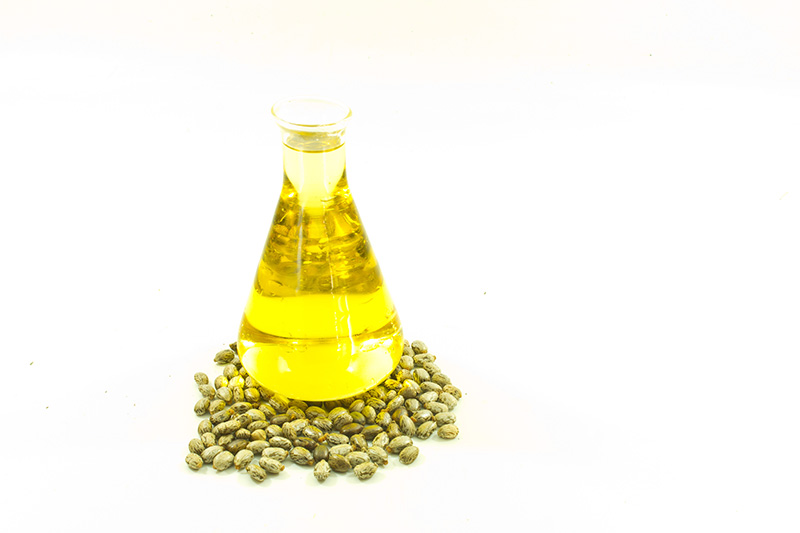Fleets Increasingly Relying on Biodiesel to Power Vehicles

 No one can predict with 100 percent certainty whether biodiesel will completely replace diesel in the future. There are just too many political, economic, and environmental impacts, and “unknowns” that are constantly in play. That said, if you take a look at the increasing use of biodiesel by commercial vehicles, as well as the growing interest in reducing carbon and greenhouse gas emissions from the transportation sector, it certainly appears that biodiesel is moving full speed ahead in that direction.
No one can predict with 100 percent certainty whether biodiesel will completely replace diesel in the future. There are just too many political, economic, and environmental impacts, and “unknowns” that are constantly in play. That said, if you take a look at the increasing use of biodiesel by commercial vehicles, as well as the growing interest in reducing carbon and greenhouse gas emissions from the transportation sector, it certainly appears that biodiesel is moving full speed ahead in that direction.
Recent research from The Association for the Work Truck Industry (NTEA), specifically the 2019 NTEA Fleet Purchasing Outlook Survey, showed that commercial fleets across the U.S. are increasingly relying on biodiesel to power both existing and new diesel vehicles. Additionally, the research showed that, for the third time in four years, surveyed fleets named biodiesel as their top alternative fuel choice for current use and for future interest.
While the NTEA also found evidence within the survey that the interest in alternative fuels, such as biodiesel, may increase or decrease in relation to fluctuating oil prices, evidence also showed that the interest will likely trend upward over the long run. It’s also highly likely that clean energy solutions will remain relevant due to oil price instability.
What Exactly Is Biodiesel and Why the Continued Strong Demand?
Biodiesel is a safe, clean-burning, biodegradable, alternative fuel that is domestically produced, commercially available, and made from vegetable oils, animal fats, or recycled restaurant greases. It contains no petroleum but can be blended at any level with petroleum to create a biodiesel blend.
Low-level blends, including B20 (6-20 percent biodiesel) and B5 (up to 5 percent biodiesel) are the most common blends and can be used in current engines without requiring modifications. They are also a simple and cost-effective solution to help fleets reduce their carbon footprint. Furthermore, B20 provides similar horsepower, torque, and mileage as diesel. High-level blends, such as B100 (pure biodiesel), are less common and can require special handling and equipment modifications. B100 is often used as a blendstock to produce lower blends.
With government policies and incentives on the local, state, and federal levels becoming increasingly supportive of fleets adopting biodiesel fuels, fleet use of biodiesel will only continue to grow. But, key to driving the uptick isn’t just favorable government policies and incentives, it’s also the advantages and benefits that biodiesel provides, including:
A Cost-Effective and Simple Green Initiative
Biodiesel blends can be used in most diesel engines, from light to heavy including new engines, with no modification. Also, biodiesel utilizes existing equipment and infrastructure, making it the least cost option for greening fleets.
Longer Engine Life, Same Performance
The improved lubrication properties of biodiesel over petroleum diesel result in increased engine life up to 10 percent and increased parts longevity up to 100 percent. This means reduced costs for both maintenance and vehicle replacement and fewer engine breakdowns, which can put a drain on productivity. Horsepower, torque, fuel economy, and performance are equivalent to petroleum diesel. Because of the higher level of cetane in biodiesel and the cleaner burn, engines powered by biodiesel run smoother and quieter.
A Fuel Solution That’s Safe and Stable
Due to its low volatility, biodiesel is safer to handle, store, and transport than petroleum fuel. In fact, it’s classified by the National Fire Protection Association as a non-flammable liquid because of its high flash point — the temperature at which fuel will create enough vapors to ignite (266 F for biodiesel compared to -40 F for gasoline). Since biodiesel is non-toxic and biodegradable, biodiesel spills cause much less damage to the environment and can be much less costly to clean up than petroleum fuels.
Reduced Carbon Footprint
A smaller carbon footprint is not only good for the environment, but it can also help boost a company’s bottom line, employee morale, and public perception. According to the EPA, biodiesel reduces greenhouse gas emissions by at least 57 percent, and by as high as 86 percent, when compared with petroleum diesel. Moreover, biodiesel significantly reduces major tailpipe pollutants, particularly those from older vehicles, which is significant since diesel exhaust is cited by the EPA as one of the most dangerous pollutants in the U.S.
The Road Ahead
With state and federal governments continuing to enact laws and provide incentives to build and grow the market for biodiesel fuels, technologies evolving that improve fuel quality and make biodiesel production more cost-efficient, and the demand for a secure, sustainable and clean energy supply ever present, the use of biodiesel will continue on an upward trajectory.
The performance, financial, and environmental benefits biodiesel provides diminishes a lot of the arguments being made against using biodiesel to power fleets.
Learn more about Green Fuels And the Future of Transportation Fleets